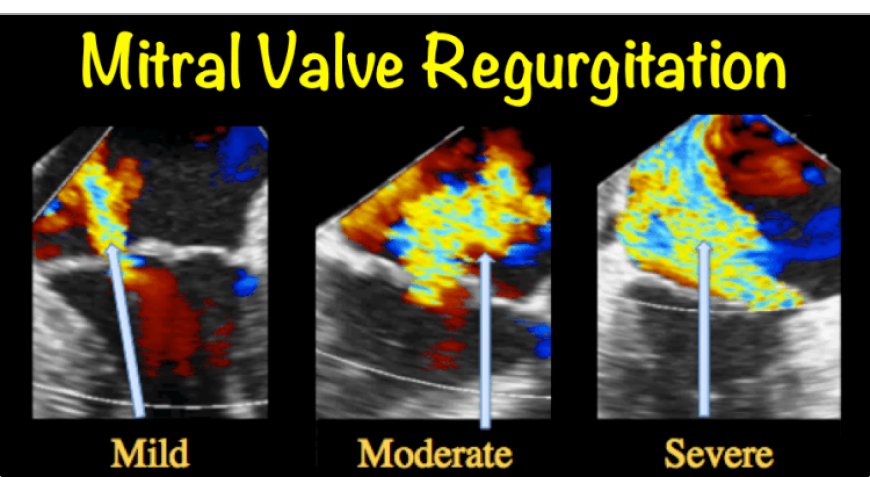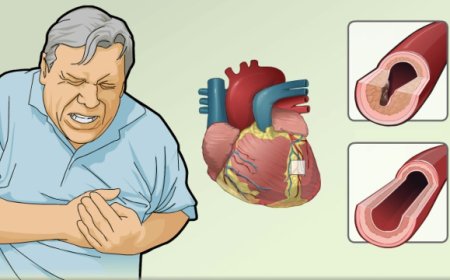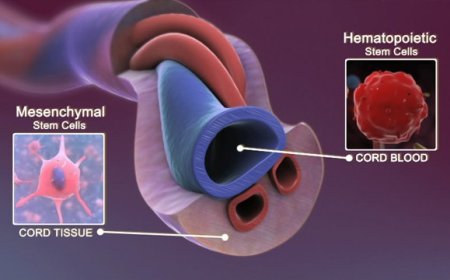Mitral Valve Regurgitation

Introduction:
In India, like in other countries, our hearts play a crucial role in keeping us healthy. Sometimes, there can be challenges with the heart's valves, like Mitral Valve Regurgitation. Learning about this condition can help us take care of our hearts and lead active lives.
Signs and Symptoms:
Mitral Valve Regurgitation may not always have obvious signs, but some common symptoms include:
- Heart Murmur: A sound heard by the doctor when listening to the heart with a stethoscope.
- Fatigue: Feeling very tired and weak, even with light activities.
- Shortness of Breath: Having difficulty breathing, especially during physical activities.
What Is "Mitral Valve Regurgitation"?
Mitral Valve Regurgitation is a condition where the mitral valve, which acts like a door in the heart, doesn't close properly. This can cause blood to leak backward into the heart's left atrium instead of moving forward as it should.
How Is "Mitral Valve Regurgitation" Classified?
Mitral Valve Regurgitation can be classified into two types:
- Acute Mitral Valve Regurgitation: This happens suddenly and requires urgent medical attention.
- Chronic Mitral Valve Regurgitation: This develops gradually over time and may not cause noticeable symptoms at first.
Causes and Triggers:
The exact cause of Mitral Valve Regurgitation is not always clear, but some things can contribute to it, like:
- Heart Conditions: Certain heart problems can damage the mitral valve, causing it to leak.
- Birth Defects: Some people may be born with a mitral valve that doesn't work properly.
- Age: As people get older, the risk of Mitral Valve Regurgitation may increase.
Risk Factors with Examples:
Some factors may increase the risk of Mitral Valve Regurgitation:
- Age: Older people may be more prone to developing this condition.
- Heart Conditions: If someone already has other heart problems, they may be at higher risk.
- Family History: If a person's close family members have had this condition, they may have a higher risk too.
Types of "Mitral Valve Regurgitation" with Detailing:
Mitral Valve Regurgitation is classified into two types based on how it develops:
-
Acute Mitral Valve Regurgitation: This type develops suddenly, often due to a heart attack or other heart-related emergency.
-
Chronic Mitral Valve Regurgitation: This type develops slowly over time, and people may not notice symptoms at first.
Diagnostic Tests and Treatments:
To diagnose Mitral Valve Regurgitation, a doctor may use the following tests:
-
Echocardiogram: This test uses sound waves to create images of the heart and check the valve's function.
-
Electrocardiogram (ECG or EKG): This test records the heart's electrical activity and rhythm.
Treatment for Mitral Valve Regurgitation depends on the individual's symptoms and the severity of the condition:
-
Medications: In some cases, doctors may prescribe medicines to manage symptoms or prevent complications.
-
Valve Repair or Replacement: If the condition is severe and causing significant problems, surgery may be needed to repair or replace the valve.
Complications of "Mitral Valve Regurgitation" and Prevention Techniques:
If not managed well, Mitral Valve Regurgitation can lead to heart failure or other heart-related issues. To prevent problems:
-
Regular Check-ups: Visiting the doctor regularly can help monitor the heart's health and catch any problems early.
-
Healthy Lifestyle: Eating a balanced diet, staying active, and avoiding smoking can support heart health.
Mitral Valve Regurgitation is a condition where the heart's valve doesn't close properly, causing blood to leak backward. By staying active, eating well, and visiting the doctor, we can take care of our hearts and keep them strong and healthy. Just like taking care of our toys or gadgets, taking care of our hearts is essential for a happy and active life!
What's Your Reaction?
 Like
0
Like
0
 Dislike
0
Dislike
0
 Love
0
Love
0
 Funny
0
Funny
0
 Angry
0
Angry
0
 Sad
0
Sad
0
 Wow
0
Wow
0









































































